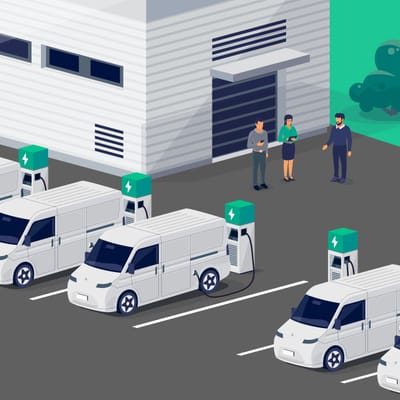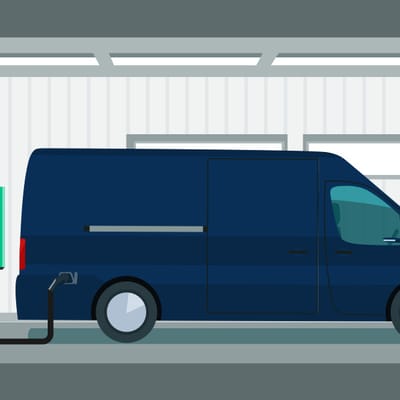- SolutionsWith a strategic solution that works for you and your business, you can unlock revenue-generating opportunities and begin managing your fleet as an investment.Overview
- About UsWhen Holman was founded in 1924, we set something positive in motion. Our consistent focus on people and our commitment to integrity make us who we are today.Overview
 Join Our TeamWe’re not just in the automotive business, we’re in the people business. Join us for the ride.Browse Careers
Join Our TeamWe’re not just in the automotive business, we’re in the people business. Join us for the ride.Browse Careers
Things to Know about EV Tax Credits and Incentives
Holman Marketing
July 29, 2021

You believe in the sustainable mission of electric vehicles (EV), but then you look into how much one costs and you get sticker shock. But then again, you hear the federal government is offering EV purchase tax credits and even EV charger installation tax credit, and you think you’re back in the game.
Time out. Bring it in for a huddle.
How do EV Tax Credits Work?
Before you start planning where to install your charging system, it’s important you know the basics about federal EV tax credits.
- The credit ranges from $2,500 to $7,500, depending on the battery capacity.
- Federal tax credits aren’t immediate. You have to wait until you’re filing your taxes to claim your purchase.
- The IRS will determine the actual federal credit amount based on your tax bill. Only if the bill is lower than the credit will you receive the balance as a refund.
Now here’s the clincher: Are you deserving of a federal EV tax credit? Of course we say, “We sure are!” But we’re talking about the IRS, after all. They have a lot of qualifiers and disqualifiers for eligibility, both detailed and broad. Let’s dive in.
Which Cars Qualify for the EV Tax Credit?
Manufacturer eligibility
The EV manufacturer has to have sold less than 200,000 units. Tesla and GM have been ineligible since meeting the sold vehicle cap in 2018. Nissan is nearing the threshold.
Vehicle eligibility
Qualifying vehicles are all-electric (AEV) or plug-in hybrid electric (PHEV). PHEVs must check off a few more boxes:
- The battery size is at least five kilowatt-hours (kWh).
- The battery charges using an external source for energy.
- The vehicle has a gross vehicle weight of up to 14,000 pounds
- The vehicle meets specified emission standards.
View Current Vehicle Eligibility List
Buyer eligibility
- You must be the original buyer of a new qualifying EV.
- For consumer-leased EVs, the federal tax credit goes to the lessor (leasing agent) rather than the lessee (you). Lessors may factor the credit into the cost of the lease to lower your monthly payment, but that’s their call.
- Businesses buying EVs for the company may not qualify if they are not in a taxable position. The best move is to consult with their tax department for direction.
- You can try to structure a lease for fleets that allows the business to take advantage of the federal credit if you are in a taxable position. Note: this does not reduce the vehicle cost; the credit will appear as a deduction on your tax bill.
State and Local Incentives
If you strike out in terms of federal tax credits, there’s still a chance to get rewarded elsewhere, and some of these apply only to businesses.
Want more good news? While you have to wait for tax season to apply for tax credits, you can claim rebates during or right after your EV purchase!
- Depending on where you are, you may be eligible for state or local tax credits, rebates, reduced vehicle taxes, and exemptions from fees or inspections. See the Full List of State Incentives
- Some utility companies offer additional incentives like cashback for buying an EV and home charging system, discounted rates for charging during off-peak hours, and other credits.
- Non-cash incentives include carpool lane access and free municipal parking.
- In some states, purchases of hydrogen fuel cell electric vehicles qualify as well.
Be a knowledgeable shopper and fully understand the EV tax credit expansion. States occasionally change their programs, so check before shopping.
This is EV tax credits and incentives in a nutshell. There are still a lot of balls in the air as the current administration is working to eliminate the OEM cap and extend the federal tax credit for EVs assembled in the U.S. and by union workers.
There are important things to know about the EV tax credits and incentives and how the EV tax credits work. Is it time to transition your fleet? Contact us for more information.
Related Resources
Explore more related industry news, insights, and developments.









